Happy Friday! A bunch of chances to see your favorite Dispatchers on TV this weekend, readers. Steve will be on Washington Week on Friday night at 8 p.m. ET and Meet the Press Sunday morning at 9 a.m. ET, and David Drucker will join Chris Stirewalt’s The Hill Sunday on NewsNation at 10 a.m. ET.
Quick Hits: Today’s Top Stories
- President Donald Trump told European leaders in a virtual meeting on Thursday—joined by Ukrainian President Volodymyr Zelensky—to curb European purchases of Russian oil, arguing such sales “fund the war.” An unnamed official told Axios that Trump “also emphasized that European leaders must place economic pressure on China for funding Russia's war efforts.” Later that day, after a Paris summit, French President Emmanuel Macron announced that 26 countries had agreed on a postwar “reassurance force” to secure Ukraine once a ceasefire is in place, and that U.S. backing would be finalized “in the coming days.” Separately, the Washington Post reported plans to wind down some U.S. security assistance to Europe—including one program that prepares for a potential Russian attack in Eastern Europe—pending internal reviews.
- Health and Human Services Secretary Robert F. Kennedy Jr. testified before the Senate Finance Committee on Thursday, during which Democratic senators pressed him to justify his decision to push out Centers for Disease Control and Prevention director Susan Monarez last week. While Monarez said she was told by Kennedy to “preapprove the recommendations of a vaccine advisory panel newly filled with people who have publicly expressed antivaccine rhetoric,” the health secretary denied this and shared a different account: “I asked her, ‘Are you a trustworthy person?’ and she said no”—a claim her lawyers called “false” and “patently ridiculous.” Later, when Democratic Sen. Mark Warner of Virginia asked Kennedy about the effectiveness of the COVID-19 vaccine, he answered by stating that the “data by the Biden administration [is] absolutely dismal” and “chaos.”
- The Justice Department is reportedly considering blocking transgender people from purchasing guns, several news outlets reported on Thursday. An unnamed White House official told the Washington Post that while DOJ leaders were considering the move, it was “not on the docket” for Trump personally. Meanwhile, an unnamed DOJ official told the Daily Wire that the agency was considering a “range of options.” ABC News reported that, because federal law prohibits individuals “adjudicated as mental defective” from owning guns, DOJ officials have discussed whether gender dysphoria diagnoses could meet that threshold.
- Stephen Miran, current chair of the White House Council of Economic Advisers and Trump’s nominee to replace Federal Reserve Governor Adriana Kugler after she resigned last month, said at a Senate confirmation hearing on Thursday that he would take an unpaid leave of absence from his White House position but would not officially resign, raising concerns about the central bank’s independence. Miran said that, were the White House to nominate him for another term after the one he was selected to serve expires in January, “I would absolutely resign” from the White House. Also during the confirmation hearing, Miran stated that he had not been pressured or asked by the White House to guide monetary policy in a manner preferred by Trump.
- The U.S. government approved a $32.5 million donation to the U.N. World Food Program to help relieve Nigeria’s food shortage, the U.S. Embassy in Nigeria announced on Wednesday. The donation “will provide food and nutrition assistance to 764,205 beneficiaries across Northeast and Northwest Nigeria,” the embassy wrote in a statement. “This includes complementary nutrition top-ups for 41,569 pregnant and breastfeeding women and girls and 43,235 children through electronic food vouchers.” U.S. government contributions accounted for 60 percent of all humanitarian aid to Nigeria until Trump cut spending for various programs shortly after entering his second term.
- Brian Schwalb, the attorney general for Washington, D.C., sued the Trump administration on Thursday for activating the city’s National Guard to quell crime. Though the president has the legal authority to call the D.C. National Guard, Schwalb argued that Trump is illegally using Guard troops for local law enforcement functions without the required consent of the district’s local government. In response, White House spokeswoman Abigail Jackson said, “This lawsuit is nothing more than another attempt—at the detriment of D.C. residents and visitors—to undermine the President’s highly successful operations to stop violent crime in D.C.” An Economist/YouGov survey published this week found 52 percent of Americans oppose sending federal troops into their home city.
- The Pentagon has approved the use of the Naval Station Great Lakes—a military base located just north of Chicago—as the base of operations for Homeland Security Department-led efforts to target illegal immigrants in the city, two unnamed defense officials told the Washington Post on Thursday. That base could also be used to shelter active-duty troops, federal agents, or Illinois National Guardsmen, were Trump to order their deployment to Chicago.
- In a move first reported by Fox News and later confirmed by White House press secretary Karoline Leavitt on Thursday, Trump is planning to sign an executive order to rename the DOD as the Department of War; the original name of the agency until 1947. However, because an official change would require congressional approval, the president is expected to make “Department of War” the defense agency’s official secondary title.
- The Department of Justice is investigating claims that Federal Reserve Governor Lisa Cook engaged in mortgage fraud, as first reported by the Wall Street Journal on Thursday. These were the allegations that ostensibly led to Trump’s attempt to fire her from her position at the central bank. Cook denies the allegations and is suing the Trump administration, arguing the president can only remove Fed governors “for cause,” which he doesn’t have. While specific details of the DOJ’s investigation are unclear, officials have already begun to issue subpoenas.
- Court records unsealed Thursday revealed that FBI agents seized multiple computers, phones, and documents from former national security adviser John Bolton’s Maryland home during an August 22 raid, including folders labeled “Trump I-IV” and a white binder marked “statements and reflections to allied strikes.” The search was part of a criminal investigation into the possible unauthorized removal and retention of classified records related to Bolton’s 2020 memoir about his time in the first Trump administration. Bolton, a vocal critic of President Trump, has not been charged with a crime and was not detained during the search.
A message from The Dispatch
Have You Seen Our New Look?
Our vision has been to build a website that matches the quality of the journalism we have been producing since October 2019. We wanted the brand to reflect the values upon which we were founded: civility, thoughtfulness, humility, independence, optimism. And as the information environment becomes increasingly dominated by artificial intelligence and social media algorithms, we knew our look needed to emphasize the humanity behind everything we publish. Check out the new site.
A Guarded Response
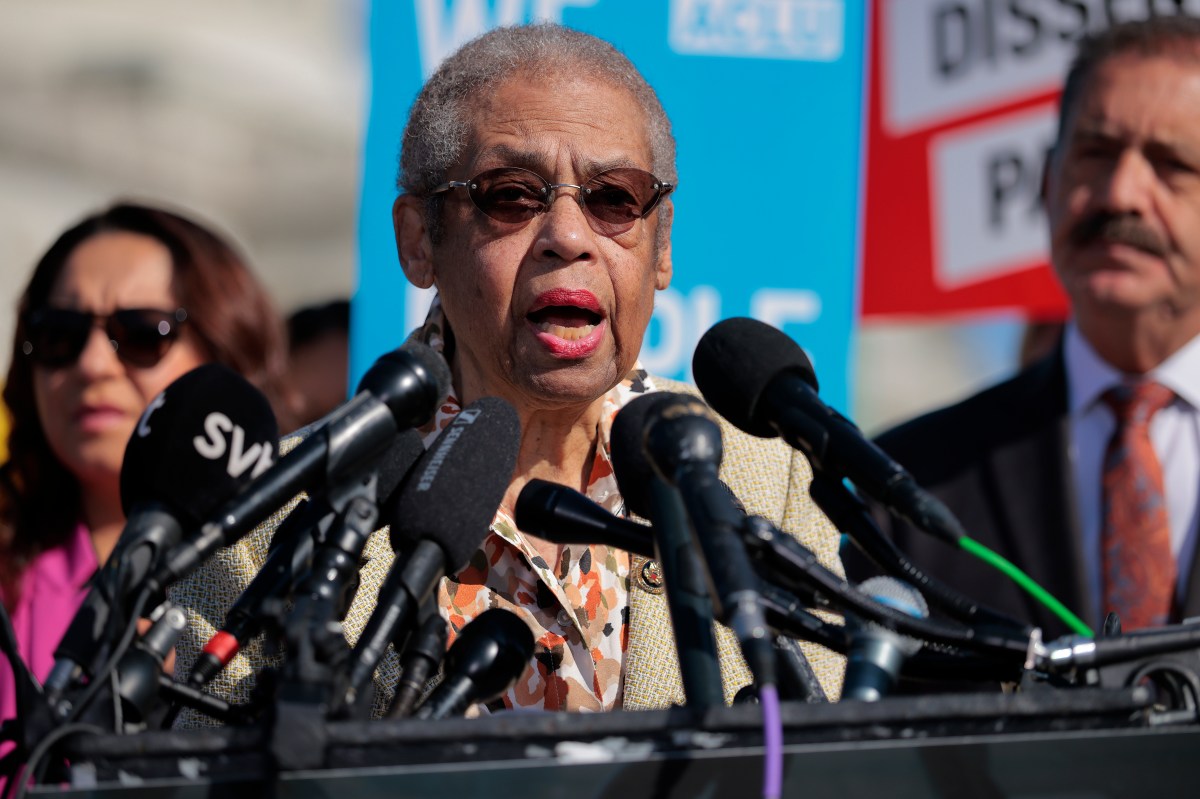
This week, Democrats walked into a “police state,” to use the words of House Democratic Caucus Chair Rep. Pete Aguilar. It was Congress’ first week back in session since President Donald Trump’s takeover of the Washington, D.C., police force—meaning it was Democrats’ first chance to collectively message against the actions they so strongly criticized when the administration first took them.
The main event was a Wednesday press conference held outside the Capitol, organized by several House members who represent parts of big cities where Trump has said he wants to deploy federal troops. They argued that the D.C. takeover was an unnecessary encroachment on the federal district and a political ploy by the Trump White House.
“Three weeks ago, despite historically low crime, for purposes opposed by 8 of 10 D.C. residents, President Trump declared a crime emergency in D.C. as a pretext for federalizing D.C.’s locally funded police department,” Eleanor Holmes Norton, D.C.’s nonvoting delegate, said at the presser. Speaking so quietly that attendees had difficulty hearing her, she continued: “He deployed more than 2,000 National Guard troops, put guns in their hands, and sent masked ICE officers to forcibly take community members from our streets. President Trump has used D.C. residents as props in a political play to showcase his own power.” In her remarks, she also reiterated her longtime call for D.C. to become a state.
As a non-paying reader, you are receiving a truncated version of The Morning Dispatch. You can read our full item in the members-only version of TMD.
But that press conference was really it. Democrats did not hold other major events on the takeover, and House Minority Leader Hakeem Jeffries and Senate Minority Leader Chuck Schumer did not mention it in their planned remarks during their own weekly press conferences. Jeffries only addressed the issue after reporters brought it up.
By and large, Democrats have struggled to message against the takeover, which Trump can maintain until Congress has to reauthorize it next week. Such weak resistance has shown Democrats’ political vulnerability on the issue—wanting to push back against Trump’s use of the National Guard to address crime, but also having to deal with the inconvenient fact that blue cities historically have a problem with crime—and seems to have made it easier for Trump to act on his stated desire to send federal troops into other blue cities such as New York and Chicago.
Norton’s line that crime in D.C. was historically low before the takeover was prevalent among early criticisms of the deployment. Many Democrats, including Schumer and D.C. Mayor Muriel Bowser, downplayed crime in the district when Trump first announced the move. In a press conference following Trump’s announcement on August 11, Bowser acknowledged that the district experienced a crime spike in 2023 but argued that it had decreased dramatically since then. “Crime isn’t just down from 2023, it’s also down from 2019 before the pandemic, and we’re at a 30-year violent crime low,” she said.
Schumer went even further in an interview on August 13. “I walk around all the time,” he said. “I wake up early in the morning sometimes and take a nice walk as the sun is rising around some of the Capitol and the other monuments and things, and I feel perfectly safe. They’re full of it.”
Crime is indeed down in Washington compared to 2023, but that isn’t saying much. Though it’s better than two years ago, the district’s homicide rate this year is still much higher than that of other major cities in the United States. From the beginning of the year to August 12, Trump’s first full day of control over policing, D.C. saw 100 homicides (down from 112 in the same period in 2024), a rate of just over 14 per 100,000. Meanwhile, Chicago had a homicide rate of 8.5 per 100,000 for the same period, similar to that of New Orleans, which was just under 8. New York’s exact data for that specific time period is not available, but based on its weekly murder rate, its total murder rate for that time would be a little over 2 per 100,000.
“Yes, crime is going down overall, but we hadn’t solved the issue,” Thaddeus Johnson, a senior fellow at the Council on Criminal Justice, told TMD. Johnson noted that despite the broad decrease, specific communities and pockets of the capital are experiencing an increase. “Oftentimes, a lot of researchers, statisticians, and leaders [will say,] ‘Oh, the data says this, the city-wide data,’ and act like people are delusional about what they’re experiencing,” he said. “But I think if you go dig deeper in the data, you can start to find some evidence why people may be still afraid of crime, even though the overall levels are lower than [they] were several years back.”
And it’s also hard to argue with the results. D.C. was seeing about three homicides per week this year before Trump took over. In the just over three weeks since Trump deployed the national guard, the district has only seen four homicides.
Some Democrats have acknowledged the decrease in crime while still objecting to Trump’s overall efforts.
Rep. Shri Thanedar of Michigan, who sits on the House Homeland Security Committee and represents part of Detroit, told TMD that crime must be addressed on a “more fundamental level” by tackling poverty and income inequality. “More police, more national guards—even military. Will that help cut down crime? Yeah,” he said. “But that’s not how it should be done. How it should be done is [by] creating opportunities, closing the large economic gap.”
Experts have previously told TMD that the Guard’s presence could have a twofold effect to deter crime. In the short term, their uniforms and arms could intimidate would-be criminals. In the long term, arresting and subsequently incarcerating offenders would prevent them from committing more crimes in the future. (To learn more about the effect the National Guard is having on D.C., read the August 21 edition of TMD.)
Leading the Wednesday press conference was Rep. Delia Ramirez, who represents part of Chicago. She said Trump’s takeover of D.C. and threats to do so in other big cities were “about threatening diverse, successful, Democratic-led cities like Chicago that refuse to bow down to authoritarianism.” Another speaker, Rep. Nydia Velásquez of New York, implied that Trump’s crime crackdown was part of an effort to distract from his purported ties to Jeffrey Epstein. “He knows that what is in the mind of the American people is about releasing the Epstein files,” she said.
Other Democrats, however, are making more measured criticisms of the Trump administration. Sen. Richard Blumenthal of Connecticut said the Democratic answer to crime in D.C. includes increasing the number of police. He criticized the administration’s cuts in funding to local police across the country, such as the Edward Byrne Memorial Justice Assistance Grant program, top source of criminal justice funding for states and cities.
He told TMD there could be “changes in criminal laws to make the penalties more effective and more judges and parole officers—providing essentially more resources to the system. I’ve long advocated it.”
Sen. Andy Kim of New Jersey said Democrats should lean on federalism to argue against the takeover. “We need to show how we’re trying to empower local leaders,” he told TMD. “We’re trying to empower local law enforcement. That’s first and foremost. The idea that we need to come from the federal level down—it’s an imposition of the federal government, something that the Republicans have often lambasted and been opposed to.”
Asked about the effects of the guardsmen’s presence on crime during his Tuesday afternoon press conference, Jeffries said he did not support an extension of the troops in D.C. by Congress and seemed to merge messaging from Blumenthal and Kim.
“I’m going to continue to personally support the Metropolitan Police Department of the District of Columbia,” he said. “I’m going to support the Chicago Police Department, the New York Police Department, and police officers who protect and serve all across the country. And if those local police departments conclude that they want some support from the federal government, then I support that effort by those local police departments to partner with the federal government. It’s as simple as that.”
Today’s Must-Read
Masked agents of the state are whisking people off of American streets. What was once a limited practice for Immigration and Customs Enforcement (ICE) agents rounding up suspected gang members or drug dealers, masking has now become commonplace for ICE agents. And as the practice has become increasingly prevalent, it has become the subject of heated debate between those who defend it as necessary to protect the safety of ICE officers and critics who argue that it is dangerous and downright creepy—if not authoritarian.
Toeing the Company Line
The Nuisance of Law
On shooting first and asking questions later.
‘I’m Not Touching You!’
Understanding Trump’s toddler presidency.
Despair and Skepticism in Kyiv
Local residents, faced with the prospect of rebuilding or moving, are distrustful of both Putin and Trump.
How (Not) to Save the American University
Why splitting the sciences and humanities—and appeasing Trump—won’t work.
The Difficulty in Defining ‘Bad’ Foods
To reduce Americans’ consumption of ultra-processed foods, we must first decide what that means.
Worth Your Time
- It’s hard to overstate how important Giorgio Armani—whose death at 91 years old was confirmed on Thursday—was for the suiting, menswear, and the business of high fashion. To read about it, check out Guy Trebay’s obituary of the designer in the New York Times: “A reluctant designer but an instinctive empire builder, Mr. Armani initially became a household name by adapting a custom from traditional Neapolitan tailors: softening the internal structure of a man’s suit to reveal the body inside. Simply by removing shoulder pads and canvas linings, Mr. Armani devised what in the early 1980s became a new male uniform, the easy and almost louche sensuality of which soon enough found favor among a female clientele.” TMD also recommends Rachel Tashjian’s piece in the Washington Post on Armani’s enduring influence, “How Giorgio Armani built the world of quiet luxury one suit at a time.” As she writes: “It isn’t even outrageous to suggest that President Donald Trump, who came of age in the go-go 1980s, is so attached to the traditional Italian suit because of the man the fashion world called Il Signor Armani. Celebrity styling? That’s an Armani innovation, too. And the look of upscale airport lounges, sleek four-star hotels and all those minimalist start-up offices — that’s the Armani universe. But there is a crucial difference between all that Armani wrought and what the designer did himself. Armani was always sleek. But his special touch was elegance — even humility.”
- Yesterday marked the release of the most anticipated game of the year, Silksong, the long-awaited sequel to 2017 indie smash Hollow Knight. Your humble Morning Dispatchers look forward to it consuming most of their weekend—particularly as, despite the anticipation, Team Cherry only charges $20 for the game. Those interested in its development should read Jason Shrier’s August 21 Bloomberg piece “Why ‘Silksong’ Took Seven Years to Make.” It’s the rare game development story that is entirely positive: “Often, such protracted development cycles are caused by mismanagement and result in painful burnout among the staff. But speaking to me last week on a video call from their office in Adelaide, Australia, Team Cherry Co-Founders Ari Gibson and William Pellen said that making Silksong has been nothing but a joyful process. ‘We’ve been having fun,’ Gibson said. ‘This whole thing is just a vehicle for our creativity anyway. It’s nice to make fun things.’ The lengthy production wasn’t the result of development challenges or obstacles, they said. They just needed all these years to ensure that Silksong was exactly the game they wanted to make. ‘It was never stuck or anything,’ Gibson said. ‘It was always progressing. It’s just the case that we’re a small team, and games take a lot of time. There wasn’t any big controversial moment behind it.’”
Presented Without Comment
Metro: Donald Trump Asks Supporters for $15 Donations To ‘Get Him to Heaven’
Also Presented Without Comment
Yahoo Finance: There Are More Americans Out of Work Than There Are Jobs Open for the First Time Since April 2021
Also Also Presented Without Comment
ProPublica: Trump Is Accusing Foes With Multiple Mortgages of Fraud. Records Show 3 of His Cabinet Members Have Them.
Let Us Know
Have any thoughts or questions about today’s newsletter? Drop us a note in the comments!

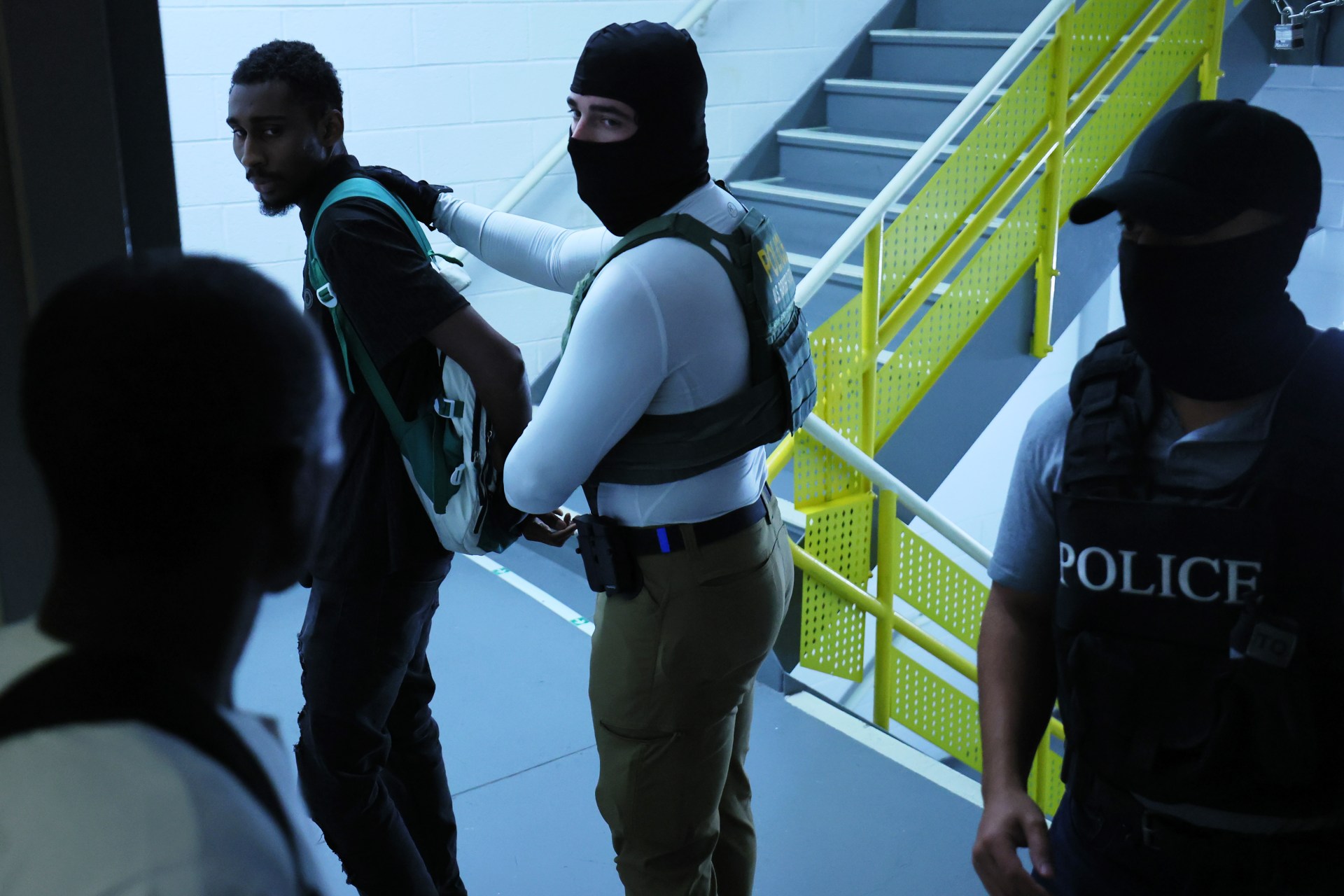

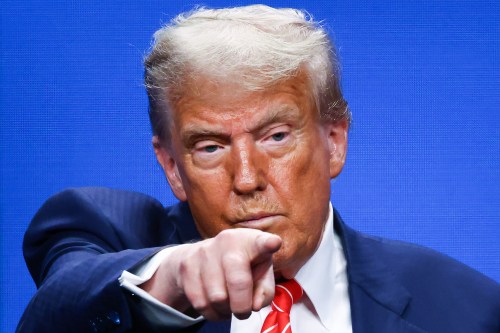

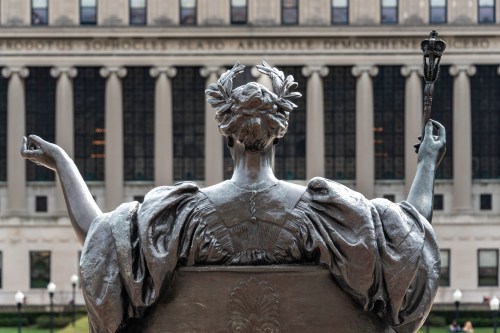





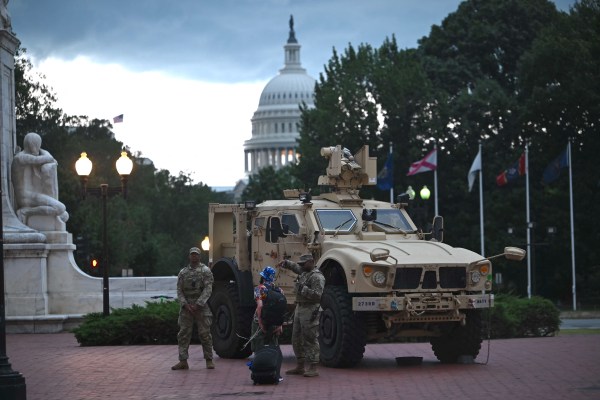
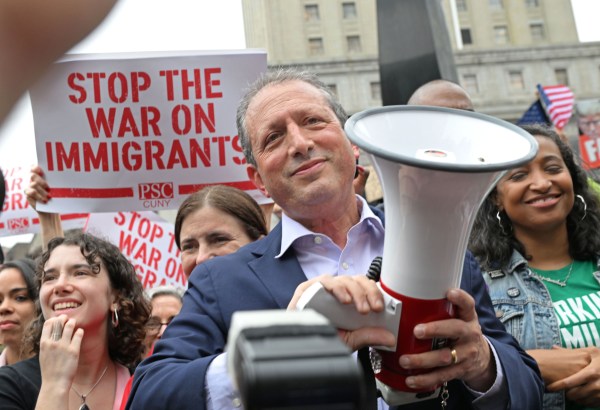

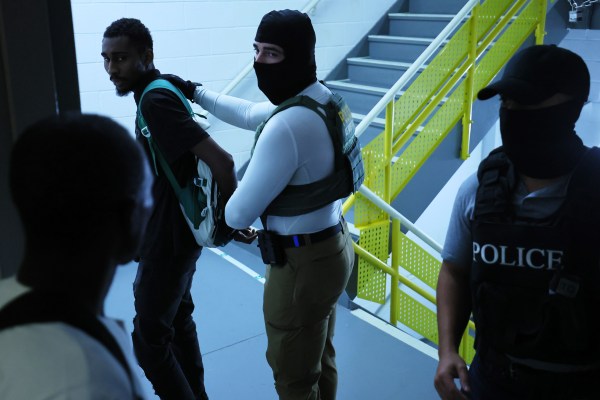
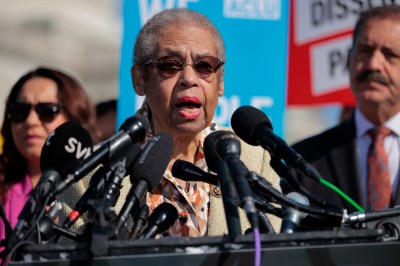
Please note that we at The Dispatch hold ourselves, our work, and our commenters to a higher standard than other places on the internet. We welcome comments that foster genuine debate or discussion—including comments critical of us or our work—but responses that include ad hominem attacks on fellow Dispatch members or are intended to stoke fear and anger may be moderated.
With your membership, you only have the ability to comment on The Morning Dispatch articles. Consider upgrading to join the conversation everywhere.